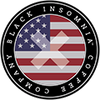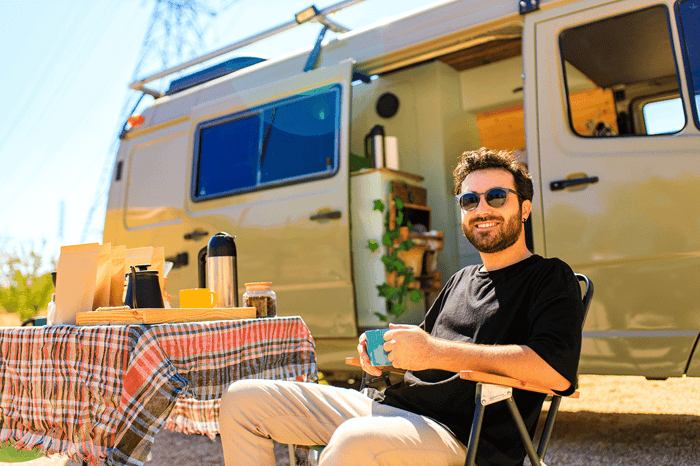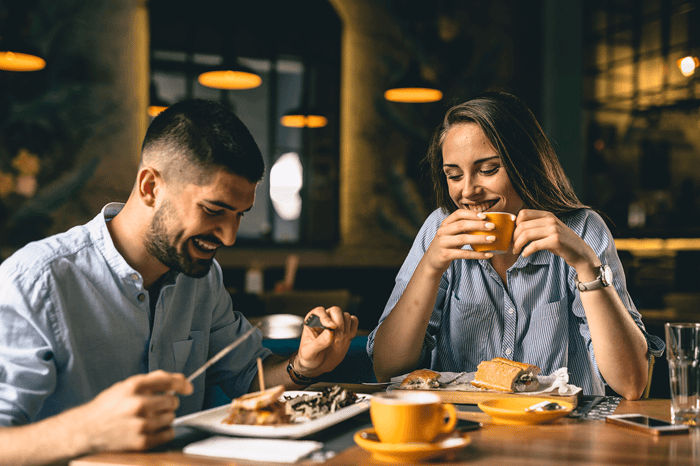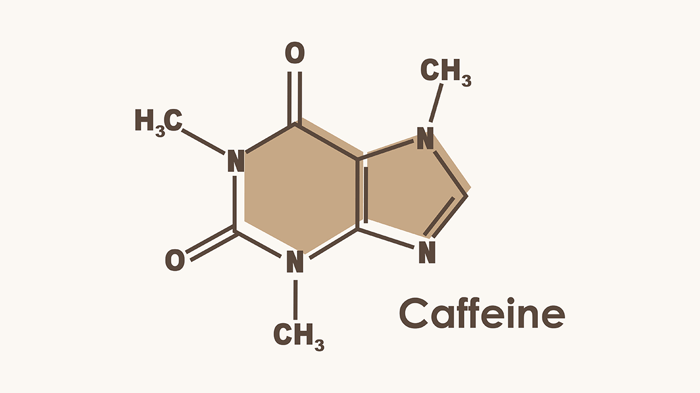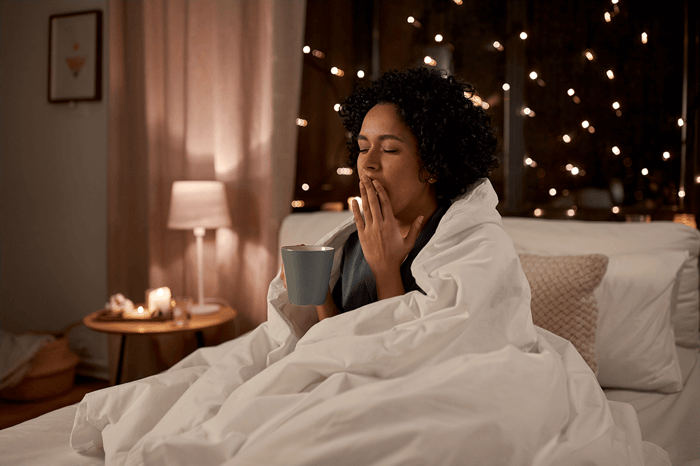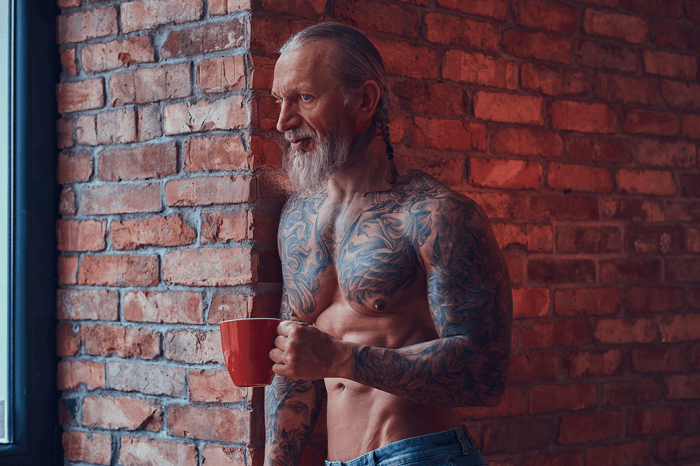Table of Contents
- Introduction
- What is Biohacking?
- Why Caffeine?
- What is Caffeine?
- How Does Caffeine Work?
- How Much Coffee Should You Drink at Once?
- What Are The Benefits and Risks of Caffeine?
- How to Extract the Most Caffeine from Coffee
- Timing Caffeine Intake (Or Spacing Out Your Cups of Coffee)
- Coffee Dosage Tips
- Cycling Your Caffeine Use
- A Note on Caffeine Sensitivity
- Final Takeaways
- References
Introduction
The caffeine found in coffee is a powerful psychoactive substance that can have profound effects on your mood, energy levels, and focus. When used correctly, caffeine can be an extremely effective tool for boosting productivity and enhancing cognitive performance.
The US Army thinks so, too. In 2018, a study published in the American Academy of Sleep Medicine proposed an optimization algorithm for caffeine dosage to maximize alertness under any sleep-loss condition. Using a mathematical model and a computationally efficient optimization algorithm, the study claimed to determine when and how much caffeine to consume to safely maximize alertness during sleep loss.
Which is all a very fancy way of saying that they were looking at when and how much to dose with caffeine to stay optimally awake and alert.

In other words, even the US Army is interested in optimizing caffeine consumption for maximum performance. And if the military is interested in something, you can be fairly certain that there's something to it. (Do not bring up the F-35.) The point is, if optimized caffeine intake can be used to keep a sleep-deprived defender of our country alert and functioning, imagine how it can help you nail that presentation, ace that report, or just get through your day without wanting to kill everyone around you.
In this guide, we'll cover everything you need to know about caffeine biohacking, including how to make coffee with the most caffeine, how to optimize your caffeine intake for maximum productivity, and other tips.
But before we dive into how to use caffeine for biohacking, let's first take a look at what "biohacking" means in this context, as well as what caffeine actually is, how it works, and how it affects the body.
What is "Biohacking"?
In this context, biohacking is a kind of blanket term that refers to the use of any and all techniques, strategies, devices, programs, etc. to optimize your biology—i.e. your mind, body and overall performance.
It could be as simple as drinking more water each day or getting enough sleep at night. But it's more commonly associated with using things like nootropics (AKA “smart drugs”), supplements, and even more woo woo things like float tanks, deep breathing exercises, and a whole host of other self-interventions.
The aim is to "hack" your own biology so that you can perform at your peak.

Now obviously, with such a wide range of things falling under this umbrella, there are some risks associated with "biohacking" in general. You are, after all, “tinkering around” with your own biology.
But just like how aspirin, crack, penicillin—and yes, caffeine—all fall under the ostensibly well-defined category of "drugs," the same can be true for various things that fall under "biohacking." Some are safe and pose little to no risk for the average person, while others are much more, let's say... potent—and thus come with greater risks.
In any case, before you follow any advice on the internet it's important to do your research, check your sources, check your sources’ sources’ sources, and to generally be as safe and informed as possible.
So in this guide, we're going to focus on one specific area of biohacking: using coffee to improve your energy, mood, and cognitive performance.
Why Caffeine?
Caffeine is the world's most popular psychoactive drug and it's also one of the most effective biohacking tools available. That's because it can have a profound effect on your energy levels, focus, mood and overall performance.
Caffeine doesn't simply make you feel more alert, according to Chris D'Adamo, PhD, director of research and education at the University of Maryland’s Center for Integrative Medicine. Caffeine also gives you more access to several chemicals (neurotransmitters) in your brain such as acetylcholine, which helps with short-term memory and learning.

The results of 13 studies that examined the impact of caffeine on either objective measures of cognitive performance or self-reported cognitive performance suggest that low or moderate dosage of caffeine before and/or during exercise can improve self-reported energy, mood, and cognitive functions, such as attention, but it may also improve simple reaction time, choice reaction time, fatigue, and memory.
What's more? Caffeine has been found to improve spatial processing—and these effects are at least partially driven by regular caffeine consumption. Spatial processing is basically your brain's ability to make sense of the 3-dimensional world around you, which is important for things like... well, everything. But especially things like driving, reading a map, or playing sports.
I'm not really a scientist, but being able to react to environmental cues more quickly and successfully navigate better in every way can obviously have a fairly big impact on your day.
Study after study has concluded that the caffeine in coffee enhances executive function, cognitive function, and generally leads to improved performance on a variety of tasks. It even helps with hand-eye coordination!
So all this is to say that: There are a lot of good reasons to use coffee as a "nootropic" or biohacking tool. But before we get into how to do that, let's take a look at what caffeine actually is and how it works.
What is Caffeine?
Caffeine is a white, crystalline xanthine alkaloid that acts as a central nervous system stimulant. It's found naturally in the leaves, seeds, and fruits of over 60 plants, including coffee beans, tea leaves, and kola nuts.
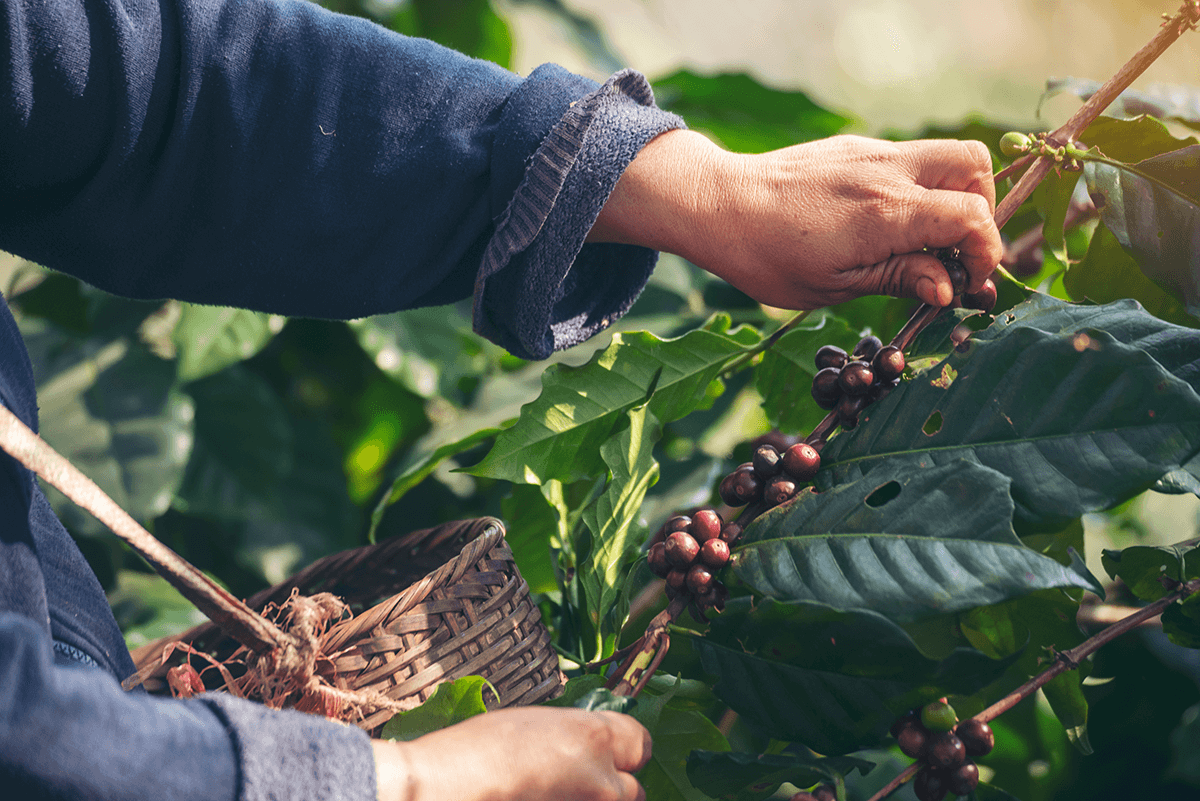
Caffeine is the world's most widely consumed psychoactive substance and it's also one of the most studied drugs in history. We know quite a bit about how it works and what it does to our bodies.
In small doses, caffeine can make us feel more alert and energetic. That's why it's often used as a pick-me-up or to combat fatigue. Caffeine can also improve mood, memory, and reaction time.
How Does Caffeine Work?
Caffeine works by binding to adenosine receptors in the brain. Adenosine is a neurotransmitter that makes us feel sleepy. When caffeine binds to these receptors, it blocks the effects of adenosine and prevents us from feeling drowsy.
At the same time, caffeine also increases the release of other neurotransmitters like dopamine and norepinephrine. These chemicals are associated with alertness and energy. That's why we tend to feel more awake after drinking coffee or tea.
How Much Coffee Should You Drink at Once?
We all metabolize caffeine differently and there's no one-size-fits-all answer. Some people can drink multiple cups of coffee per day without any problems while others who are very caffeine sensitive (or not used to caffeine) may feel jittery after just a single cup.

The best way to figure out your ideal dose is to start with small amounts and see how you feel. If you're sensitive to caffeine, stick to lower doses (1-2 cups of coffee per day). If you're less sensitive, you can go up to 3-4 cups per day or more if you want.
What Are the Benefits and Risks of Caffeine?
Caffeine is a central nervous system stimulant. It increases alertness, reduces fatigue, and can improve cognitive function. Caffeine can also help improve physical performance by reducing perceived effort and delaying fatigue and the onset of sleepiness.
The beneficial effects of caffeine are dose-dependent. That is, the more you consume, the greater the effects will be. But as with most things, there's a point of diminishing returns, and in general, if you consume too much caffeine you'll start to experience negative effects like the jitters and high blood pressure.

When it comes to drinking coffee, there is little danger of overdosing on caffeine—especially for adults. Caffeine intoxication is "relatively uncommon" (Source) and "generally, life-threatening caffeine overdoses entail the ingestion of caffeine-containing medications, rather than caffeinated foods or beverages."
This explains why you don't hear a lot of stories about coffee ODs. And there's a reason there aren't a lot of psychological dramas where the protagonist develops an addiction to coffee and becomes imprisoned in a world of delusion and desperation as their life crumbles around them (although if you know of any, please send them my way).
However, if you're ingesting caffeine in powdered/pill form or drinking energy drinks, it's very important to be aware of the health risks. Consuming excessive caffeine can lead to irregular heartbeat, heart arrhythmias, seizures, and in rare cases, death. And just 1 teaspoon of powdered caffeine can be equivalent to 25 cups of coffee, according to the FDA.
In other words, stick to coffee.
How to Extract the Most Caffeine from Coffee
Now that we know a little bit more about caffeine and coffee, let's talk about how to get the most out of both. There are a few things you can do to extract a greater amount of caffeine from coffee grounds.
Some of these tips have far more of an effect than others, but in the interest of striving for completeness (This is an "Ultimate Guide," after all) we're going to give you more information here rather than less.

In rough order of how much of an effect each tip has (from most to least), here are a few ways to get the most caffeine from your coffee:
Look for the Robusta Label
Look for Robusta coffee beans rather than 100% Arabica beans. Robusta beans have a significantly higher caffeine content than Arabica beans. So if you're looking for a real caffeine kick, go with a coffee that's made mostly or entirely of Robusta beans.
Start Strong
If caffeine is what you’re after, why not start with the strongest coffee in the world? Black Insomnia is the strongest coffee in the world, verified by independent lab tests. If you want to start off with the absolute strongest coffee (with the most caffeine), this is the one you want.
Extreme Caffeine - Classic Roast Single Serve Cups
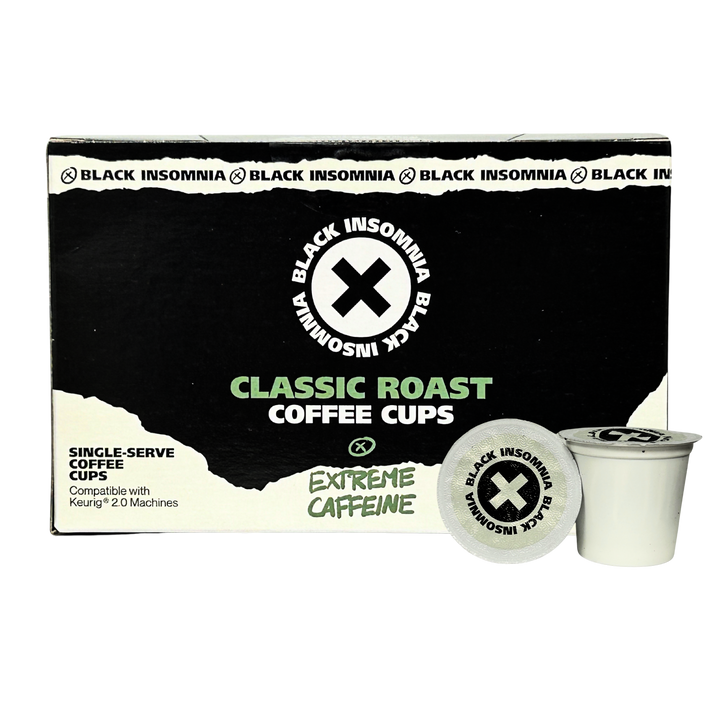
$14.99
The Strongest Coffee in the World - Because You're Not Here For Mediocre Black Insomnia isn’t just coffee; it’s a caffeine-fueled uppercut to your morning routine. It’s up to 4x stronger than your basic brew, because let’s be honest, you're… read more
Stay Cool (Well, Cold)
Make cold brew instead of hot brew: Cold water extracts caffeine from coffee more slowly, but because cold brewing takes hours (up to an entire day) instead of minutes, you can end up with a much higher concentration of caffeine in your final cup.
Be Generous
Add more coffee grounds: This one is pretty self-explanatory. If you want more caffeine, add more coffee grounds. However, be aware that this can also make your coffee’s flavor more bitter.

Grind Finer
Use a finer setting on your grinder: Coffee grounds that are more finely ground will have more surface area, and thus be inclined to release more caffeine into the water. (Like adding more grounds, finely ground coffee can taste more bitter (and flavorful in general) than more coarsely ground coffee.
Turn Up the Heat
Use hot water (if you're not cold brewing). The solubility of caffeine in water is directly related to the water’s temperature. Water just below boiling, or somewhere between 195F and 205F is a good target. Water around 150 degrees or below will extract significantly less caffeine. To brew coffee with the most caffeine, aim for a temperature above 195F but below boiling.
Let it Steep for a While
Let the coffee grounds steep in water longer. You might be thinking, "Wait, I thought you said to use hotter water. Isn't that going to make the coffee more bitter?" And the answer is, yes. So don't go overboard, unless your palate is made of sterner stuff than mine.

Freshen Up Your Coffee
Use freshly roasted and ground beans: While caffeine is a very stable chemical and takes a long time to degrade, it still does degrade. This means that coffee that's been sitting around for a long time is going to be marginally less potent than freshly roasted and ground beans.*
*The thing with this is, it's probably not going to be less potent in any meaningful way. But you don't want to be drinking old, stale coffee anyway because it's going to taste terrible. So you may as well get the tiniest bit of extra caffeine by using coffee that isn't old.
Keep it Light (Or Keep it Classic)
Don't use dark roast beans: Again, another tip that honestly doesn't have much of an effect, if any, which is why it's included down here for the sake of “completeness” rather than at the top of the list.
However, contrary to popular belief (probably due to the stronger flavor) dark roasts do have slightly less caffeine than light or classic roasts—all other things being equal—because of the greater heat exposure during roasting.

So if you're looking to eke out every last milligram of caffeine, you may as well go with a light or classic roast. Just remember that dark roast Robusta will have significantly more caffeine than light roast Arabica.
Wait—Didn’t You Forget to Recommend a Brewer?
You might be wondering which type of brewer you should use for getting the most caffeine. French Press? Chemex? Mr. Coffee?
But the real answer to that question is: "you should be cold brewing.”
Cold brewing is simply the process of steeping coffee grounds in cold water for an extended period of time. It can take as little as 4 to 6 hours, but since we're after the coffee with the most caffeine here, 12 to 24 hours is a better target.
Keep in mind that the longer you cold brew, the more potent (and bitter) your coffee will be, so if you're not sure how long to leave cold brew in the refrigerator, start with shorter times and work your way up.
Extreme Caffeine - Cold Brew Ready To Drink Coffee
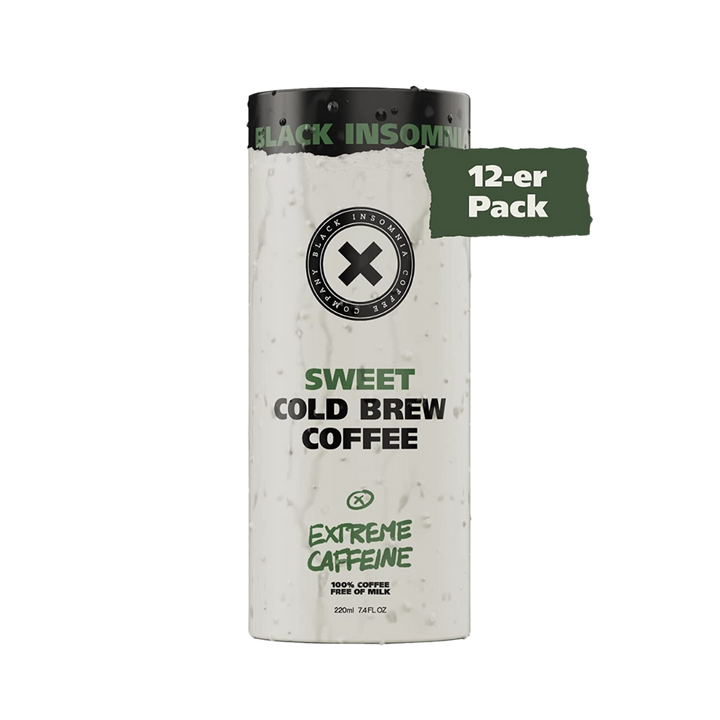
$29.99
GRAB A CAN, GET EXTREME Special Offer: Buy One Get One 50% Off - Code: ColdBrewBOGO Are you tired of those wimpy, weakling cold brews that barely make a dent in your sleep-deprived brain? Look no further than Black Insomnia… read more
Timing Caffeine Intake (Or Spacing Out Your Cups of Coffee)
While I, unfortunately, don't have access to the US Army’s caffeine optimization algorithm tool at the time of writing this guide (apparently it's on a need-to-know-basis at the moment) I can give you a general sense of how to time your caffeine intake for peak performance.
The first thing you need to know is that caffeine has a half-life of around 5 hours. It varies from person to person, but that's a good number to use for estimating purposes. So if you drink a cup of coffee at 9am that has 200mg of caffeine, by 2pm there will still be 100mg of caffeine in your system. And by 7pm there will still be 50mg of caffeine in your system.
Caffeine also has a relatively short latency period, meaning it takes around 15-45 minutes for you to feel its effects. So if you drink a cup of coffee at 9am, you can expect to feel its effects (the stimulating, alertness-boosting effects) around 9:30am or so.
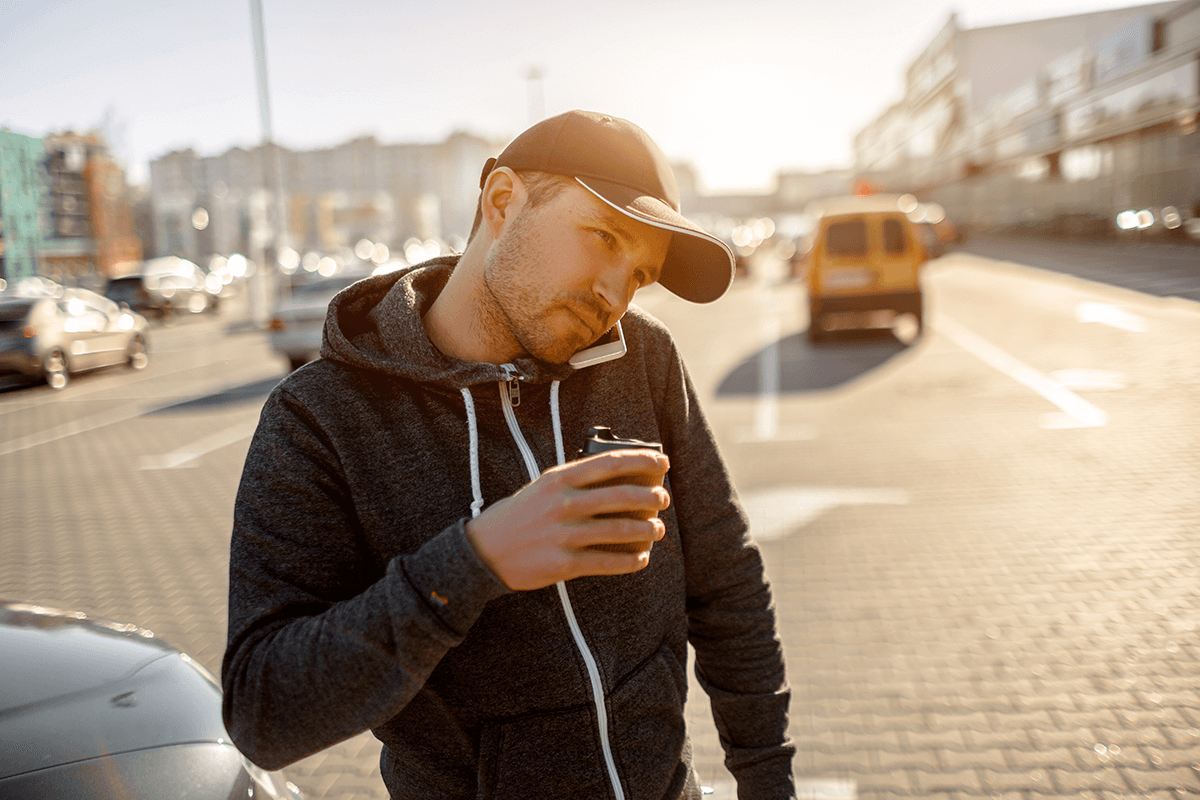
When you drink coffee, the caffeine starts working right away. It can generate a huge "spike" of energy and productivity, but that's not what we're after here. We want to get the effects of coffee sustained over a longer period, avoiding a crash. That's where timing comes in.
The basic principle is, you want to drink your first coffee at a reasonable pace (don't gulp all of it down at once). Then, you want to wait a bit before you have your second cup. But here's the key: You want to start drinking the second cup before you stop feeling the effects of the first.
That can be different for different people. For some people, this "sweet spot" is usually around the 3-4 hour mark.
Going by this, if you have your first cup of coffee at 9am, you'll want to have your second cup between noon or 1pm, rather than waiting until you notice yourself starting to feel tired or sluggish.
This will help keep the caffeine effects going strong throughout the day, rather than just getting a big spike of energy followed by a crash.
Coffee "Dosage" Tips
An individual's optimal "dosage" of coffee depends on a lot of factors, including body weight, age, genetics, and sensitivity to caffeine.
There isn't really a single answer that works for everyone.
A general rule of thumb is to start with a lower dose (i.e. less coffee) and then increase it gradually until you find what works for you. If you are not caffeine-sensitive, a general starting point for dosage is around 100mg of caffeine, which is roughly the amount in an average cup of average coffee.
Some find that 200mg of caffeine (or about 2 cups of coffee) is an "optimal" dose for them, but since everyone's tolerance and sensitivity is different, I won't recommend a specific number here.
It's always better to start with less rather than more. You can always have another cup of coffee if you need it, but it's hard to take it back once you've had too much. You have plenty of time to experiment and find your ideal dosage.

Cycling Your Caffeine Use
Even if you're using caffeine correctly, it's still a good idea to "cycle" your use of it. By that, I mean you should take periodic breaks from caffeine, rather than using it every day.
The reason for this is that caffeine can build up a tolerance in your body. So if you're using it every day, you might find that the effects become less and less pronounced over time.
For example, it makes sense for a lot of people to skip coffee on the weekends. (Trust me, I don't like the idea of that any more than you do.) This won't reset your caffeine tolerance completely, but it will help to keep it in check. And it will help you feel the effects of the caffeine more when you do drink it.
Taking a week or two off from coffee every now and then can help reset your tolerance, so you can get the full effects when you start using it again. It's easier said than done, but if you can do it—it may be worth it.

A Note on Caffeine Sensitivity
Some people are more sensitive to caffeine than others. If you find that even small doses of caffeine make you jittery or anxious, then you might be more sensitive to it. In that case, it's probably best to avoid caffeine altogether.
There's no shame in that—caffeine just isn't suitable for everyone. It works well for many, many, many people, but if it doesn't work well for you, there's no reason to force it.
Final Takeaways
Caffeine is a powerful tool that can be used to improve energy, productivity, and focus. But it needs to be used correctly.
Here are some key takeaways from this guide:
- Caffeine can have a profound effect on your energy levels, focus, mood and overall performance.
- The results of studies suggest that caffeine can improve self-reported energy, mood, and executive/cognitive functioning, as well as simple reaction time, choice reaction time, fatigue, memory, and spatial processing.
Using coffee as a biohacking tool:
- Always start with less caffeine and increase gradually until you find what works for you.
- Don’t gulp—down your coffee at a reasonable pace, and wait a bit before having your second cup.
- Start drinking the second cup before you stop feeling the effects of the first.
- Cycle your use of caffeine, taking periodic breaks from it, to maximize its effects.
- If you find that even small amounts of caffeine make you feel jittery or anxious, then you might be more sensitive to it. In this case, you should probably avoid caffeine use entirely or limit the amount of caffeine you ingest, at a minimum. Only a qualified healthcare professional can tell you for sure.
You don't need some "limitless drug" or "smart pill" to hack your productivity. Coffee can do the job just fine—if you know how to time your "doses" and use it to your best advantage. With the tips in this guide, you’re well on your way to making your coffee work even harder for you.

And if you want the coffee with the most caffeine, check out Black Insomnia. It's not for the faint of heart, but given its lab-verified status as the strongest coffee in the world caffeine-wise, it just might possibly be the perfect coffee for biohacking productivity. (That is, if you can handle it.)
Now get out there, brew a pot of coffee, and make some awesome stuff happen!
Extreme Caffeine Coffee and AeroPress Coffee Maker Bundle
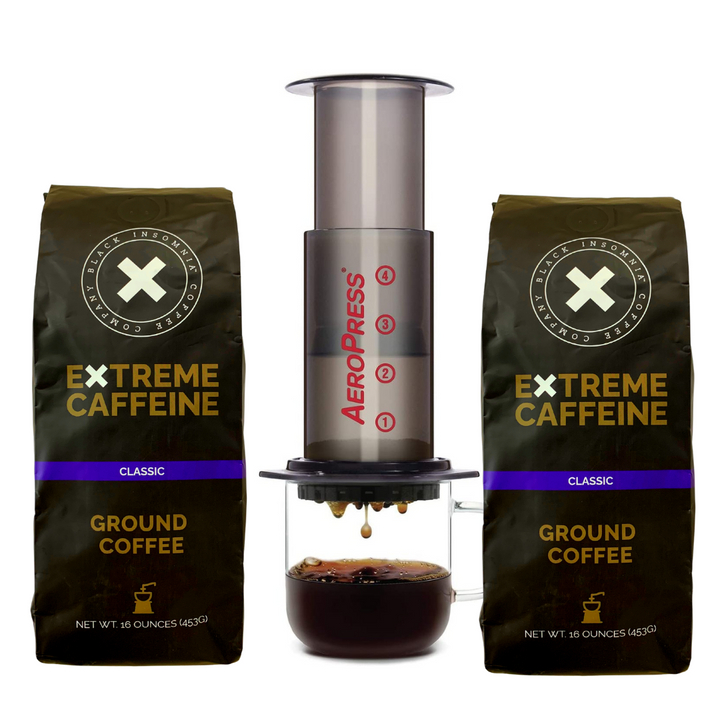
$59.99
$69.99
The AeroPress is ideal for any coffee lover looking for a rich and smooth cup of coffee without acidity or bitterness. Special Offer bundle. Get an AeroPress brewer with your choice of two pounds of Black Insomnia whole bean or… read more
References
- Vital-Lopez, FG, Ramakrishnan, S, Doty, TJ, Balkin, TJ, Reifman, J. Caffeine dosing strategies to optimize alertness during sleep loss. J Sleep Res. 2018; 27:e12711. https://doi.org/10.1111/jsr.12711
- Nootropics (“Smart Drugs” or “Cognitive Enhancers”): What to Know. WebMD https://www.webmd.com/vitamins-and-supplements/features/nootropics-smart-drugs-overview
- Lorenzo Calvo J, Fei X, Domínguez R, Pareja-Galeano H. Caffeine and Cognitive Functions in Sports: A Systematic Review and Meta-Analysis. Nutrients. 2021 Mar 6;13(3):868. doi: 10.3390/nu13030868. PMID: 33800853; PMCID: PMC8000732.
- Giles GE, Mahoney CR, Brunyé TT, Taylor HA, Kanarek RB. Caffeine promotes global spatial processing in habitual and non-habitual caffeine consumers. Front Hum Neurosci. 2013 Oct 17;7:694. doi: 10.3389/fnhum.2013.00694. PMID: 24146646; PMCID: PMC3797965.
- Kim, H., Kang, S.H., Kim, S.H. et al. Drinking coffee enhances neurocognitive function by reorganizing brain functional connectivity. Sci Rep 11, 14381 (2021). https://doi.org/10.1038/s41598-021-93849-7
- Zhang Bin, Liu Ying, Wang Xiaochun, Deng Yuqin, Zheng Xinyan. Cognition and Brain Activation in Response to Various Doses of Caffeine: A Near-Infrared Spectroscopy Study, Frontiers in Psychology Vol. 11 2020 https://www.frontiersin.org/articles/10.3389/fpsyg.2020.01393 doi: 10.3389/fpsyg.2020.01393
- Cappelletti S, Piacentino D, Fineschi V, Frati P, Cipolloni L, Aromatario M. Caffeine-Related Deaths: Manner of Deaths and Categories at Risk. Nutrients. 2018 May 14;10(5):611. doi: 10.3390/nu10050611. PMID: 29757951; PMCID: PMC5986491.
- Powdered caffeine can be deadly, FDA warns. University of Utah Health. (n.d.). Retrieved August 16, 2022, from https://healthcare.utah.edu/healthfeed/postings/2014/08/080114_article-powdered-caffeine.php
- Papadelis C, Kourtidou-Papadeli C, Vlachogiannis E, Skepastianos P, Bamidis P, Maglaveras N, Pappas K. Effects of mental workload and caffeine on catecholamines and blood pressure compared to performance variations. Brain Cogn. 2003 Feb;51(1):143-54. doi: 10.1016/s0278-2626(02)00530-4. PMID: 12633594.
- Marcello Solinas, Sergi Ferré, Zhi-Bing You, Marzena Karcz-Kubicha, Patrizia Popoli, Steven R. Goldberg. Caffeine Induces Dopamine and Glutamate Release in the Shell of the Nucleus Accumbens. Journal of Neuroscience 1 August 2002, 22 (15) 6321-6324; DOI: 10.1523/JNEUROSCI.22-15-06321.2002
